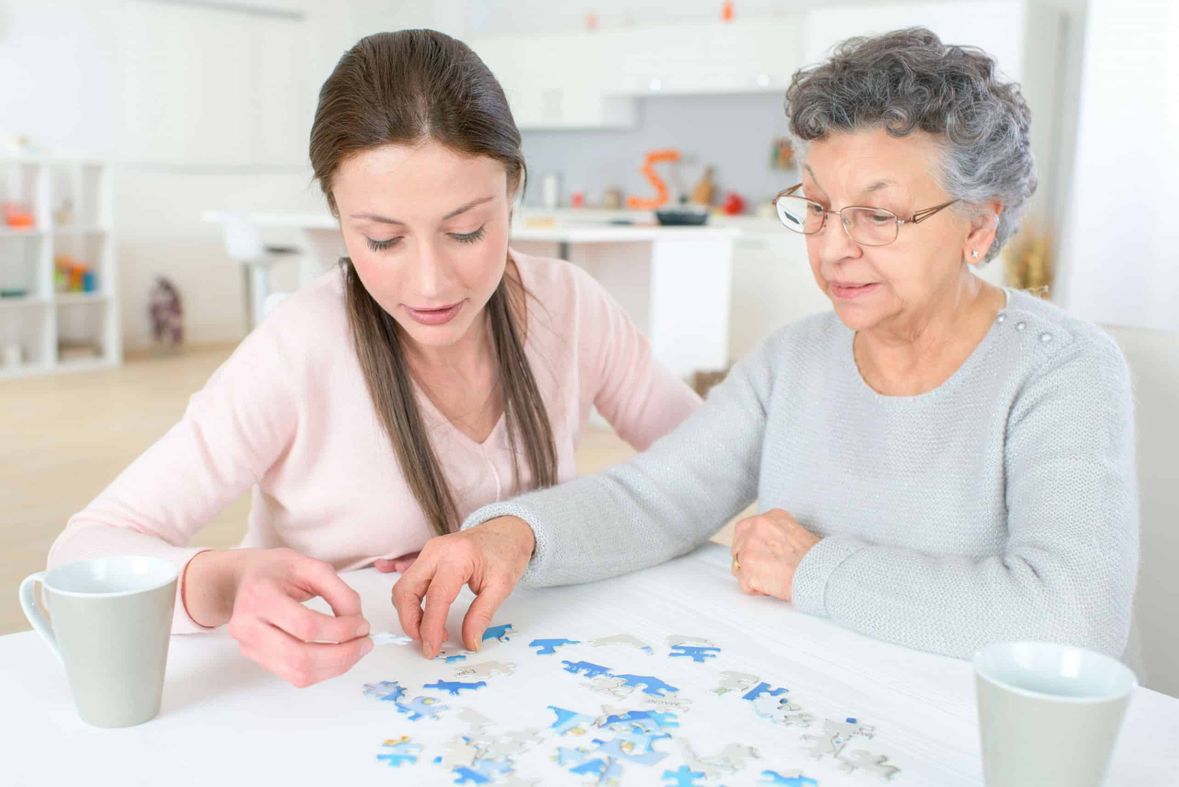Routines: boring and mundane to some; useful for keeping anxiety and stress levels at bay for others, but for those living with dementia, a routine is so much more. For a start it is an incredibly important component of keeping healthy – routine and repetition can be critical in order to function as learning new things can be difficult and take a lot longer than for those who don’t live with dementia.
The coronavirus pandemic has disrupted the routines of many of us, and for those who live with dementia, and those who care for them, the effects can be far reaching. A good routine for a dementia patient includes consistent sleep patterns, meal times, and participating in activities – and disrupting those routines can be very stressful for someone who can’t track new information as this can lead to confusion and maybe even further memory problems.
There is often a worry that if a person who lives with dementia is exposed to a long period of stress it will speed the progression of the disease. Luckily, the evidence suggests that that isn’t the case, and that any changes to a dementia patient’s condition is normally only temporary.What Can I Do To Help Someone Who Lives With Dementia?
If you are currently caring for a loved one who is living with dementia, there are some important things you can do to help them during this time:
Stick To A Routine – Sticking to a routine as much as possible is one of the key ways you can ensure that an elderly person living with dementia stays as stress-free as possible. Structure to the day means that the patient has a clear idea of what is expected and creates a comforting environment. Of course at the moment some of the routine, particularly if loved ones normally visit at a particular time, is going to be disrupted. This might cause some confusion for a while; the good news is that once a new routine has been established it won’t take long for someone who lives with dementia to get used to the changes.
Have A Plan For The Day – There are some activities that dementia patients might have enjoyed pre-pandemic that aren’t suitable right now, so it might take a bit of creative flair to think of some new things! A good idea is to use a calendar or white board for example, and have these activities written down where a patient can see them. It will help them get used to a new routine if they can see the plan for the day written out.
Help Them To Communicate – Technology is a fantastic way to fight social isolation, and helping someone who lives with dementia to speak to family members through video links or social media could give them a real boost! Maybe a new baby has been born into the family, or the grandchildren want to tell Grandma what they’ve been getting on back at school – helping an older person with dementia to communicate with family members that can’t visit is rewarding for everyone.
Don’t Share Too Much Information – People who live with dementia might not remember the details of the things they see or hear on the news, but holding on to the emotional information can lead to increased feelings of stress, anxiety or fear – without them knowing why they feel that way. Don’t expose a patient to a lot of negative information, instead engage them in activities they enjoy such as listening to music.
Reminisce – Taking in new information can be hard for dementia patients, so when you talk to someone living with the condition it’s a good idea to talk about past events; trips they might have been on or activities they’ve participated in. It’s important to help older people with dementia to experience positive emotions, and so talking about happy times in the past could prevent them from remembering that they feel worry or stress.
Keeping someone who is living with dementia as stress-free as possible during this pandemic can be quite difficult when the pandemic is top of everyone’s conversation lists at the moment – look at any newspaper or turn on any TV or radio station and there it is – and so it’s going to be near impossible to shelter someone from what’s going on completely.
How much information a patient can process will depend on the severity of their condition, but how do you know if someone who is living with dementia is experiencing too much stress?
What Are The Signs?
During stressful times, such as the one we find ourselves in now, someone who has dementia might become more confused or agitated than normal during certain situations. This is to be expected and these changes are more often than not, temporary. However, some behaviours can be more of a cause for concern.
Such as:
Acting out of character by putting themselves in harm’s way or wandering off.
Becoming physically aggressive.
New types of behaviours that continue for several days; unexplained incontinence, for example, or obsessing over something in a way they haven’t before.
If you notice any of these changes and you are concerned then it is always advisable to speak to a healthcare professional.
We’re living in difficult times and for those living with any type of memory disorder it can be even more scary; and even more trying for those who are caring for them. If you want to know more about how to care for someone who is elderly during the Covid-19 pandemic, then please do get in touch with us at Care In Kent.


